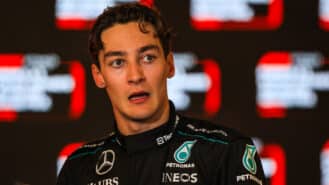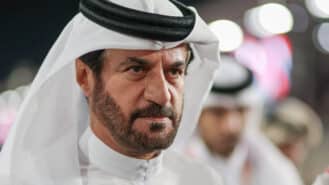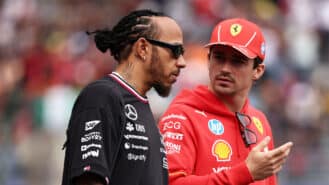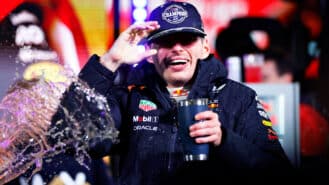
Verstappen proves Russell right: Abu Dhabi GP 2024 – Up/Down
Verstappen's prang at the first corner of the F1 finale in Abu Dhabi vindicated George Russell's recent rant
When I first started doing this job, the kind of car you bought was determined by the class in which it sat. Back then, some time before the battle of Waterloo, these classes even had nicknames, provided oddly enough by Ford courtesy of the total market domination it enjoyed at the time. So you bought a car in the Fiesta class, the Escort, Sierra or Granada class and, yes, it makes me feel old too.
Where do you start now? Part of my day job road testing cars is to clear a path through the utter chaos of a class system now so fractured it lies in so many splinters on the floor. But the truth is even I’m confused by it all, so what chance is there for someone who’s not obsessed with cars and just wants to know what’s best to buy? They’re not spoiled for choice so much as ruined.
Let us say you’d like a small BMW. And why wouldn’t you? They are broadly excellent cars. Look back 25 years and the choice was between a 3-series coupé, a saloon, a convertible or an estate. Nothing simpler. All were rear drive only, there were five engines to choose between (including the M3), all powered by petrol and a choice between standard or SE trim. Now let’s consider the same proposition today. You’ll have to bear with me for what follows, but it needs spelling out.

Today the 3-series is available as a saloon, estate or hatchback. But so too can you buy a 4-series based on the same platform as a coupé, a convertible or a so-called Gran Coupé, which looks like a coupé but has four doors. But then there is also the 2-series which comes as not only a coupé and a convertible but also as an ‘Active Tourer’ which is a ‘crossover’ model based not on any other BMW on sale, but a Mini. Still with me? I’ve not yet mentioned the 1-series hatch that can be had with either three or five doors, nor of course the all-electric and unique i3.
And you’d think that’d be it but, of course, it isn’t because what I’ve not yet mentioned is the X1 compact SUV with all its myriad drive line configurations. Within this lot there are cars with front, rear and four-wheel drive, powered by petrol, diesel or electricity and, if my maths and the back of Autocar can be relied upon, eight different trim levels (not including i3 or M3/M4 derivatives) and a grand total of 21 different power outputs from 94 to 425bhp.
Please don’t think I’m singling out BMW here – Audi’s ranges are scarcely any less baffling and there are others too. But how is anyone expected to make the right choice?

More, how did we get this way? Simply through car manufacturers realising that it actually doesn’t cost very much to make different versions of the same car and that by doing so customer choice can be increased. And that’s all very well and sensible until you extend the principle further than it cares to go and end up with an unfathomably complex mess on your hands. Which is where we are at now.
Interestingly Mini has announced that in future it will have a range of just five models instead of the current seven, while I have been told by a senior engineer at Jaguar that the company is now less worried about its inability to produce as many different versions as offered by its rivals because it foresees them cutting their model ranges back to something more manageable too.
I hope so. We’re never going to get back to the days when simple ranges existed within easily identifiable classes and I have no problem with that. But the current situation where niches are created within niches and model ranges expand exponentially is not sustainable. Cars are becoming less and less distinct and those who want to buy them more and more confused. Range rationalisation won’t happen overnight but when it does it will be not one moment too soon.

Verstappen's prang at the first corner of the F1 finale in Abu Dhabi vindicated George Russell's recent rant

FIA president Mohammed Ben Sulayem seemed intent on making F1 a united front by the end of the 2024 Qatar GP – against him

Leclerc erupted after feeling wronged one time too many by Sainz in Vegas – but the challenge posed by his team-mate next year, Lewis Hamilton, will be much greater writes James Elson

2024 has been Max Verstappen's masterclass – it should go down in history as one of F1's greatest titles